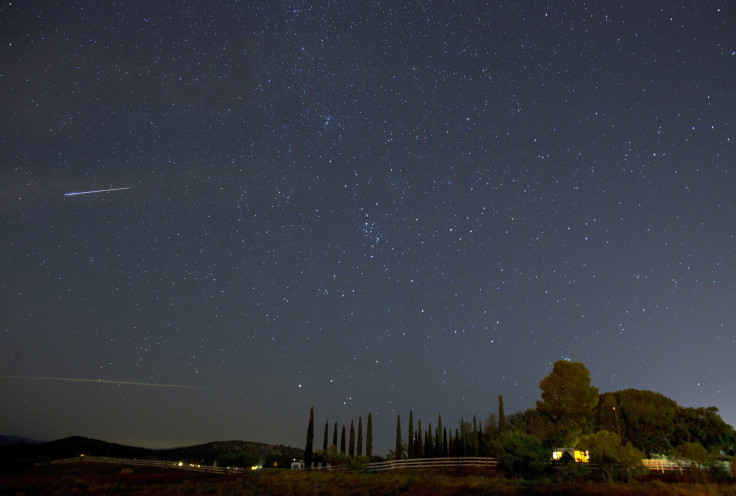Eta Aquarids 2016 Live Stream: Watch The Meteor Shower Caused By Halley’s Comet Here

Halley's Comet won't swing by Earth again until 2062, but the famed celestial object has left behind a debris trail responsible for two meteor showers. The Eta Aquarids peak overnight Wednesday, with the Southern Hemisphere having the best vantage point for the annual event. For those who can't view the event in person, Slooh will host an Eta Aquarids live stream beginning Wednesday at 8 p.m. EDT.
Meteor showers are the result of debris trails left behind by comets as they orbit into the inner solar system and make their closest approach to Earth. Each year, the planet crosses through the stream of dust and rocks, leading to shooting stars or meteors. The debris trails vary in size and density, which is why meteor showers can have high rates of activity (such as August's Perseids or December's Geminids, with up to 100 meteors per hour) or relatively low rates of activity (October's Orionids and November's Leonids average around 10 to 20 meteors per hour). Halley's Comet is also responsible for the Orionids.
Whereas comets are responsible for the meteor showers, the annual event is named after its perceived point of origin, or its radiant. Meteors during the Eta Aquarids appear to come from the constellation of Aquarius. The constellations Lyra, Orion, Leo and Gemini are the apparent radiants for the Lyrids, Orionids, Leonids and Geminids.
The peak of the Eta Aquarids is expected to bring around 20 to 60 meteors per hour. The Southern Hemisphere has the best view of the meteor shower with an expected rate of around 30 meteors. The Northern Hemisphere could see around 10 meteors every hour. Aside from potential cloud cover or weather that hinders viewing, Friday's new moon means dark skies for stargazing.
The Eta Aquarids are best viewed during the pre-dawn hours, according to EarthSky. Stargazers should let their eyes adjust to the night sky as they try to find the constellation Aquarius. Slooh's robotic telescopes are another way to view the Eta Aquarids. The broadcast, originating from the Canary Islands, will feature commentary from astronomers.
© Copyright IBTimes 2024. All rights reserved.






















